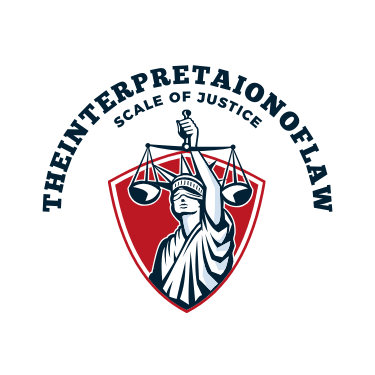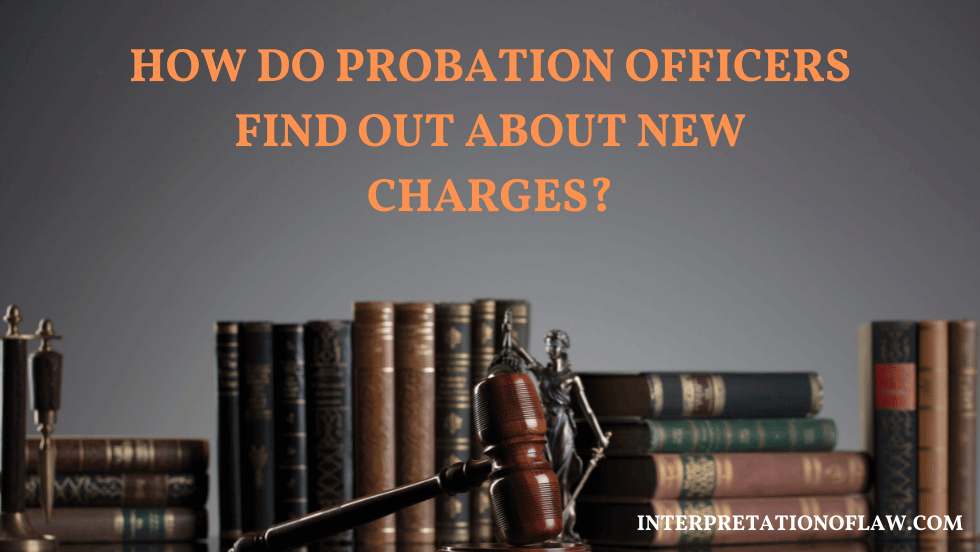Probation officers play a pivotal role in the criminal justice system by supervising individuals on probation and ensuring they adhere to the terms set by the courts. One essential aspect of their supervision is monitoring for any new charges against the probationers. Understanding how officers stay informed about these new charges is crucial for comprehending the checks and balances within probation oversight.
What is Probation?
Probation is a court-ordered period of supervision during which an individual must comply with specific terms and conditions to avoid incarceration. These terms may include regular check-ins with a probation officer, community service, drug testing, and any other requirements deemed appropriate by the court. Probation officers work closely with the courts to oversee individuals on probation and help them successfully complete their sentences.
While probation may seem like a “second chance” for individuals who have been convicted of a crime, it is still considered part of the criminal justice system. This means that any violation of the terms set by the court can result in consequences such as jail time or further restrictions on probation.
What is a Probation Officer and their Duties?
A probation officer is a law enforcement professional who supervises individuals who have been placed on probation instead of serving prison time.
Evaluations
Evaluating the risk level of probationers is an essential aspect of a probation officer’s role. This evaluation helps determine the level of supervision and support needed for each individual.
Supervision
Probation officers are responsible for monitoring individuals on probation, ensuring they comply with all court-ordered terms and conditions. They may also provide resources, support, and guidance to probationers to help them successfully complete their sentence.
Community Resources
One of the roles of a probation officer is connecting probationers with necessary community resources. These may include counseling services, job training programs, or substance abuse treatment facilities.
How Do Probation Officers Find New Charges?
Probation officers have an array of tools at their disposal to monitor new charges against probationers. These include:
Law Enforcement Notification
Local law enforcement agencies often communicate directly with probation departments, informing them when a probationer is involved in new criminal activity.
Court Notification
Court systems usually notify probation officers if a probationer under their charge has been implicated in new legal proceedings or has new charges filed against them.
Victim Notification
In cases where there are victims involved, notifications about new charges may come through victim services that are aware of probation statuses.
Probationer Notification
Probationers are typically required to inform their probation officers of any encounters with law enforcement, including new charges.
Online Database Searches
Probation officers regularly use online databases and criminal information systems to search for new charges against individuals under their supervision.
Interagency Cooperation
Cooperation between various criminal justice and law enforcement agencies ensures that information about new charges is passed on to the relevant probation officers.
Notifications from Law Enforcement
Notifications from law enforcement agencies provide timely information about arrests or investigations involving probationers.
Court Hearings
Probation officers may become aware of new charges during routine court hearings or when reviewing court documents.
Reports from Other Probation Officers
If a probationer moves to a different jurisdiction, the new probation officer may report any new charges to the previous officer.
Read More: How do Probation Officers Find Out About Police Contact?
Technology Tools and Databases
To keep detailed tabs on new charges, probation officers use robust technology tools and databases such as:
National Crime Information Center (NCIC)
The NCIC is a law enforcement database that contains information on a wide array of legal concerns, including the criminal histories of probationers.
Court and Case Management Systems
These systems track case progress and integrate with probation databases to ensure that probation officers have complete up-to-date information.
Automated Alerts and Notifications
Many jurisdictions utilize automated systems that alert probation officers immediately when a probationer receives new charges.
How Does a Probation Officer Verify Abour New Charges?
When probation officers are notified of new charges against a probationer, they must verify the information to ensure its accuracy. This verification process may include:
Reviewing Court Documents
Probation officers will review court documents related to the new charges, such as arrest reports and charging documents.
Contacting Law Enforcement or Court Personnel
Officers may contact law enforcement or court personnel involved in the case to confirm details or obtain additional information.
Speaking with the Probationer
Probation officers will often speak directly with the probationer to gather their side of the story and determine if the new charges are legitimate.
Conducting Background Checks
Officers may conduct background checks on probationers, which can provide additional insights into their criminal history and any new charges.
Potential Consequences of New Charges for Probationers
If a probation officer confirms that a probationer has new criminal charges, there could be consequences. These may include:
Modification of Probation Terms
Depending on the severity and nature of the new charges, the court may modify the terms of probation to ensure public safety.
Revocation of Probation
In more serious cases, the court may revoke probation altogether and send the individual to prison.
Additional Consequences
Other consequences could include additional fines, community service, or mandatory counseling sessions.
Which Types of Charges Does a Probation Officer Look For?
Probation officers are trained to look for all types of charges against probationers, ranging from minor infractions to serious felonies. Some common charges that may raise red flags for probation officers include:
- Drug-related offenses
- Assault or violence charges
- Theft or property crimes
- DUI/DWI charges
- Failure to comply with conditions of probation
The Importance of Communication and Collaboration
The dutiies of a probation officer is crucial in ensuring that individuals on probation are held accountable for their actions while also receiving support to successfully complete their sentence. Effective communication and collaboration with other criminal justice agencies are vital to ensuring that probation officers have all the necessary information to supervise their caseload effectively. By using various tools, databases, and verification methods, probation officers can stay updated on any new charges against their probationers and take appropriate action to ensure public safety and promote rehabilitation.
In addition to monitoring new charges, probation officers also work closely with rehabilitation programs and community resources to help probationers successfully reintegrate into society. They may provide guidance, support, and resources to help individuals overcome the challenges they face while on probation. By working together with other agencies and staying vigilant about new charges, probation officers play a crucial role in promoting public safety and reducing recidivism rates.
FAQs
When probation officer never found out about new charges?
If the probation officer never receives notification or becomes aware of new charges against a probationer, it could be due to a lack of communication between agencies or technology failures.
In such cases, it is important for probation officers to have open and regular communication with their peers and utilize reliable technology tools to stay informed about any changes in their caseload.
Will my probation officer check for arrests?
Yes, probation officers regularly check for new arrests or charges involving individuals under their supervision. This is done through various means, including online databases, automated alerts, and cooperation with other agencies.
What happens if I get new charges while on probation?
If a probation officer confirms that you have new criminal charges, there may be consequences such as modifications to your probation terms or revocation of probation. It is important to communicate openly and honestly with your probation officer if you are facing new charges to ensure the best possible outcome.
Can my probation be extended due to new charges?
Depending on the severity and nature of the new charges, the court may choose to extend your probation term or even revoke it altogether. Your probation officer will work closely with the court to determine the appropriate course of action based on your individual case.
Conclusion
The seamless merge of technology and cohesive interagency cooperation forms the backbone of the process by which probation officers find out about new charges. This constant flow of information is critical for the effective monitoring of probationers and plays a vital role in ensuring the safety of the community while supporting the rehabilitation of individuals on probation.
References:
- https://www.internalaffairs.co.za/services/criminal-probation
- https://www.cga.ct.gov/PS99/rpt%5Colr%5Chtm/99-R-1282.htm
- https://criminal.findlaw.com/criminal-procedure/what-is-the-role-of-a-probation-officer.html
- https://apublicdefender.com/2018/10/23/probation-officers-and-new-charges/
- https://www.courtinnovation.org/publications/supervising-probation-cases-involving-new-arrests
- https://www.prisonlegalnews.org/news/publications/understanding-the-role-of-probation-officers/

Carter Wilson is a licensed lawyer with over 10 years of experience in various legal fields. He is passionate about making law accessible to the general public and helping individuals navigate through complex legal matters.

